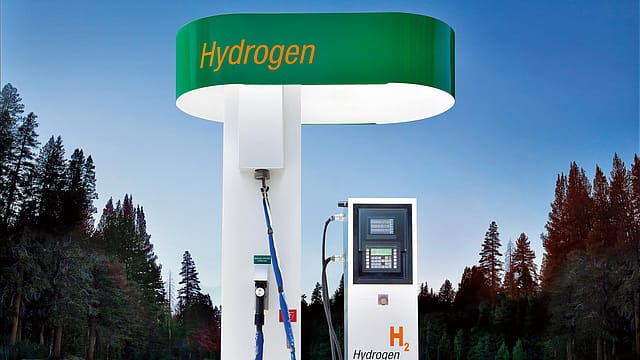India proposes Global Biofuel Alliance and Green Hydrogen Centre for energy transition
ADVERTISEMENT

India has proposed to form a Green Hydrogen Innovation Centre and a 'Global Biofuel Alliance' for energy transition at the 4th and last Energy Transitions Working Group (ETWG) meeting held under India's G20 presidency.
The meeting, held in Goa and attended by over 115 delegates representing G20 member countries and nine invitee countries, has emphasised the urgent need for feasible, collaborative, and accountable policy actions to accelerate global energy transitions, while ensuring universal affordable energy access. The meeting identified affordable access to power and clean energy solutions as a growing necessity, along with safeguarding the supply chains of critical materials to foster a more sustainable clean energy transition, Indian officials briefed at a media interaction.
"There has been a substantive meeting of minds on low-cost financing for energy transition. The Working Group has taken note of the voluntary action plan proposed by India for doubling the pace of energy efficiency by the year 2030," says Pankaj Agarwal, ETWG Chair Union Power Secretary. The meeting has helped to have significant convergence on hydrogen-related issues and agreed upon urgently finding gaps in energy transitions. Members have arrived at a consensus on many incremental proposals put forth by the Indian Presidency and efforts are ongoing to negotiate further on remaining points, he says.
"The importance of developing and widely adopting both existing and emerging clean technologies was underscored, including Carbon Capture Utilization and Storage (CCUS), Green and Low Carbon hydrogen and its derivatives, biofuels, Small and Modular Reactors (SMRs), among others," says Ajay Tewari, Additional Secretary, Ministry of Power. Participants recognized that technology cooperation and collaborative investment are vital to advance these initiatives successfully, he added.
The meeting also released 13 global studies focusing on advancing energy transitions, to provide valuable insights and guidance for collective efforts in achieving transition goals. The studies included topics such as low-cost finance for energy transition, renewable energy supply chain, vulnerability of supply chain of oil and gas energy sources, role of transnational grid interconnections, doubling pace of energy efficiency, importance of biofuels in energy mix, global best practices for just transition in coal sector and critical role of small and modular reactors in energy transition.
The first three meetings of ETWG were held in Bengaluru, Gandhinagar, and Mumbai to identify and promote best practices, policies, and innovative approaches that support a just and inclusive energy transition. India outlined six priority areas under India’s G20 Presidency - (i) Energy transitions through addressing technology gaps (ii) Low-cost financing for energy transitions (iii) Energy security and diversified supply chains (iv) Energy efficiency, industrial low carbon transitions, and responsible consumption, (v) Fuels for Future (3F) and (vi) Universal access to clean energy and just, affordable, and inclusive energy transition pathways.
The 4th ETWG meeting also held detailed discussions on the draft Ministerial Communique for further firming up the pathways. The Ministerial meeting, which marks the culmination of the ETWG meetings, will be held in Goa on 22nd July and will be chaired by Union Minister of Power, and New and Renewable Energy, RK Singh.